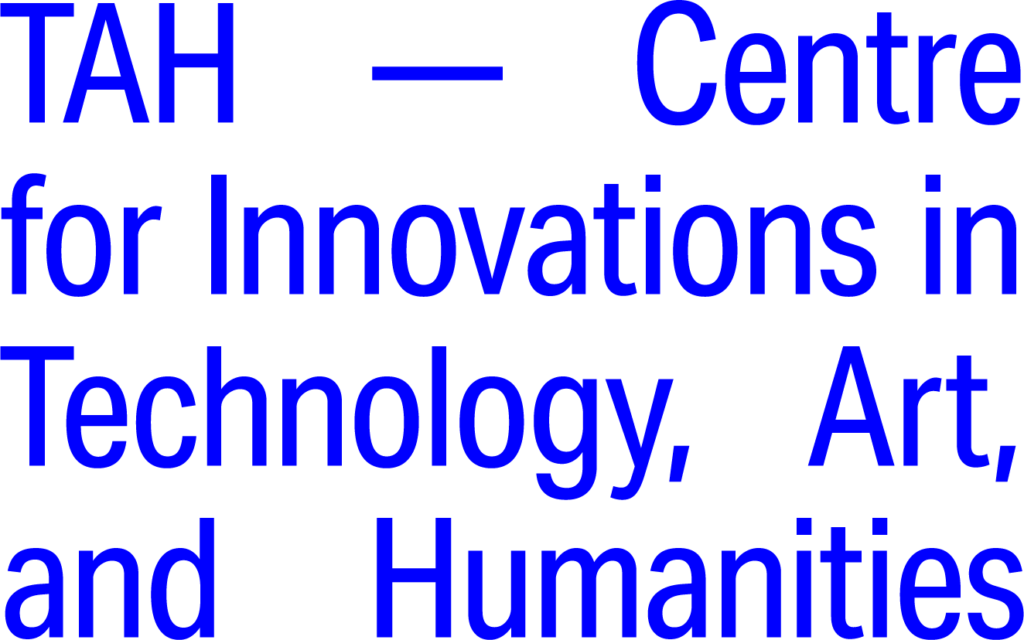Future Tech & Social Justice
“You will gain knowledge on how to properly implement principles of interdisciplinary collaboration and social impact into emerging projects. This increases success in grant calls beyond just Horizon Europe.” – TAH Centre
This multilayered course provides a unique opportunity to engage with transdisciplinary approaches, from scenario planning to stakeholder engagement, socially responsible design, and creative AI applications.
Who Should Attend
- Educators and researchers passionate about transdisciplinary collaboration
- Academics in higher education and lifelong learning looking to innovate their teaching practices
- Artists and technologists interested in the intersection of digital tools and societal impact
Learning Outcomes
- Apply transdisciplinary approaches to future-oriented challenges
- Use scenario planning to anticipate technological transformations
- Build stakeholder engagement frameworks for participatory innovation
- Integrate social justice principles and gender dimension into technological development
- Harness AI and creative tools for effective communication and impact
Why This Course Matters
In an era where AI, robotics, and digital transformation reshape every aspect of life, technological development must go hand in hand with social responsibility. Future-forward education requires new methodologies, practical strategies, and cross-disciplinary collaboration to ensure inclusive, and sustainable progress. This course equips participants with tools and frameworks to integrate science, technology, humanities, and arts into impactful, real-world solutions.
After Completing The Course, You Will Be Able To:
- Use scenario planning to anticipate technological transformations – You will acquire techniques for systematic analysis of future development scenarios, enabling you to refine your own topics
- Build frameworks for participatory stakeholder engagement – You will gain practical tips for mapping key actors whose involvement will increase the positive impact of your activities
- Integrate social justice principles and gender dimension into technological development – You will learn how to properly implement these aspects into research proposals, which is important for success in Horizon Europe grant calls
- Harness AI and creative tools for effective communication and impact – You will be able to create compelling visual and narrative elements for your research and creative activities, increasing their clarity and impact
Pre-requisites
Non
Date
The course has been postponed to 2026
Location
TBA
Format
4-day intensive course with hands-on workshops with internationally recognized experts
Certificate
Proof of Attendance
Language
English
Fees
395 EUR or 10.000 CZK per participant
The course is eligible for Erasmus+ Staff Mobility Week
20% discount for TAH association members
Registration Deadline
TBA
Course Structure
Day 1: Transdisciplinarity & Scenario Planning
- Understand transdisciplinary methods and their role in responsible innovation
- Analyze future tech challenges through scenario planning & simulation
- Establish project themes for development throughout the course
Day 2: Stakeholder Engagement & Systemic Impact
- Map key stakeholders and participatory structures for inclusive tech development
- Develop engagement strategies using AI-driven analysis & visual tools
- Expand project frameworks through participatory design & biophilic principles
Day 3: Integrating Social Just Perspectives in Tech
- Explore the role of social sciences and humanities in shaping equitable technological solutions
- Develop methodologies to integrate gender & social justice perspectives
- Apply impact-driven frameworks to ensure inclusivity in tech innovation
Day 4: Creative AI for Project Impact
- Use AI as a tool for amplifying project impact
- Develop digital artifacts that effectively communicate societal relevance
- Showcase projects in a final exhibition and explore pathways for real-world implementation
Daily Agenda
DAY 1: Future Technology Challenges
9:00 – 9:30 | Welcome & Introduction
Course overview, objectives, and participant introductions
9:30 – 10:30 | Opening Workshop & Team Building
Interactive activities to establish collaborative learning environment
10:30 – 12:00 | Introduction to Trans/Interdisciplinarity
Theoretical foundations in multidisciplinary innovation practice
12:00 – 13:30 | Lunch Break
13:30 – 15:30 | Project Theme Development for the week
Scenario planning, simulating possible tech futures, and exploring best practice examples
15:30 – 16:00 | From Theory to Practice
How transdisciplinary projects come to life in real-world applications
16:30 – 17:00 | Learning Outcomes & Day Closure
Reflection on key takeaways, Q&A session, and preview of Day 2
DAY 2: Meaningful Collaboration
9:00 – 9:30 | Morning Briefing & Recap
Connecting Day 1 insights with collaborative approaches
9:30 – 12:00 | Stakeholder Mapping & Engagement Strategies
Identifying key partners and designing effective participation structures
12:00 – 13:30 | Lunch Break
13:30 – 15:30 | Project Enhancement Through Participation
Practical exercises in developing engagement strategies and collaborative mechanisms
15:30 – 16:00 | Learning Outputs & Day Closure
Documentation of progress and preparation for Day 3
DAY 3: Fostering Impact Through Social Justice
9:00 – 9:30 | Morning Briefing & Recap
Connecting collaborative structures to social justice principles
9:30 – 12:00 | Introduction to Social Justice in Innovation
Theoretical foundations and case studies of equitable technological solutions
12:00 – 13:30 | Lunch Break
13:30 – 15:30 | Practical Project Enhancement
Integrating gender dimensions into project content and positive social just impact
15:30 – 16:00 | Learning Outputs & Day Closure
Reflection on applications and preparation for final day
DAY 4: AI & Creativity for Impact
9:00 – 9:30 | Project Finalization Check-in
Brief team summaries of current status and refinement needs
9:30 – 11:30 | AI as a Tool for Social Impact
Techniques for enhancing project impact through AI-powered creative tools
11:30 – 13:00 | Lunch Break
13:00 – 14:30 | Development of Project Artifacts
Teams finalize outputs including visuals, texts, and AI-generated elements
14:30 – 16:00 | Final Exhibition and Impact Presentations
Showcasing completed projects and reflecting on the entire process
16:00 – 17:00 | Evaluation & Course Closure
Final reflections, assessment of learning journey, and next steps discussion
Instructors
Learn From Leading Experts in Tech, Sociology, and Creative Innovation
This course is designed and delivered by renowned researchers, educators, and practitioners at the cutting edge of technology, humanities, and arts. Our instructors bring expertise in future scenarios planning, social impact assessment, participatory design and creative AI tools. They are thought leaders shaping responsible tech discourse through research, policy, and creative interventions.
How to register?
Choose your course and follow these simple steps:
- Standard participants: Complete this registration form directly.
Erasmus+ participants: Contact your institution’s Erasmus+ Officer first, then complete this form. - After registering, you’ll receive a confirmation email with preliminary information.
- Pay the course fee according to the invoice (sent 8 weeks before the course).
- Once payment is confirmed, you’ll receive detailed course materials and instructions.
Do You Have Any Questions?
Go through our FAQ and our Terms and Conditions or connect with TAH Impact Academy Coordinator








